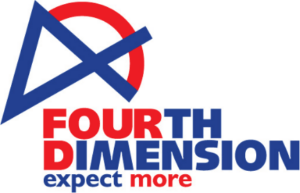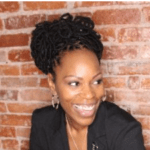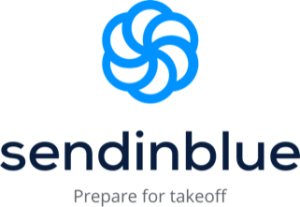
Katelyn Gerber & Rachel Kribbs: Using COPE To Keep Your Website Fresh
Create Once, Publish Everywhere. User friendly COPE workflows and principles will efficiently keep your website content up-to-date. Explaining how are Katelyn Gerber and Rachel Kribbs, both from FORM. (This is part of our coverage of the 2022 Nonprofit Technology Conference, hosted by NTEN.)


Listen to the podcast
Podcast: Play in new window | Download
Get Nonprofit Radio insider alerts!
I love our sponsors!
![]() Turn Two Communications: PR and content for nonprofits. Your story is our mission.
Turn Two Communications: PR and content for nonprofits. Your story is our mission.
Fourth Dimension Technologies: IT Infra In a Box. The Affordable Tech Solution for Nonprofits.
We’re the #1 Podcast for Nonprofits, With 13,000+ Weekly Listeners
Board relations. Fundraising. Volunteer management. Prospect research. Legal compliance. Accounting. Finance. Investments. Donor relations. Public relations. Marketing. Technology. Social media.
Every nonprofit struggles with these issues. Big nonprofits hire experts. The other 95% listen to Tony Martignetti Nonprofit Radio. Trusted experts and leading thinkers join me each week to tackle the tough issues. If you have big dreams but a small budget, you have a home at Tony Martignetti Nonprofit Radio.
View Full Transcript
Processed on: 2022-05-06T02:55:45.142Z
S3 bucket containing transcription results: transcript.results
Link to bucket: s3.console.aws.amazon.com/s3/buckets/transcript.results
Path to JSON: 2022…05…590_tony_martignetti_nonprofit_radio_20220509.mp3.722146398.json
Path to text: transcripts/2022/05/590_tony_martignetti_nonprofit_radio_20220509.txt
mm hmm. Hello and welcome to tony-martignetti non profit radio Big nonprofit ideas for the other 95%. I’m your aptly named host of your favorite abdominal podcast. Oh, I’m glad you’re with me. I’d be hit with a Nicaea if you nailed me with the idea that you missed this week’s show. Using Cope to keep your website fresh, create once published everywhere. User friendly cope workflows and principles will efficiently keep your website content up to date explaining how are Caitlin Gerber and Rachel cribs both from form. This is part of our coverage of the 2022 nonprofit technology conference hosted by N 10 On Tony’s take two please share. We’re sponsored by turn to communications pr and content for nonprofits. Your story is their mission turn hyphen two dot c o. And by 4th dimension technologies I thi infra in a box The affordable tech solution for nonprofits tony-dot-M.A.-slash-Pursuant four D. Just like three D. But they go one dimension deeper here is using Cope to keep your website fresh. Welcome to Tony-Martignetti non profit radio coverage of 22 NTC. You know what that is The 2022 Nonprofit Technology Conference. Our coverage continues with Caitlin Gerber and Rachel Cribs Caitlin is director of operations at form and Rachel cribs is account executive at form Caitlin Rachel Welcome to nonprofit radio [00:02:06.04] spk_1:
thank you. Thanks for having us. It’s [00:02:10.84] spk_0:
a pleasure to have both of you. Your [00:02:11.86] spk_1:
session [00:02:21.54] spk_0:
topic is using Cope principles to keep your website fresh. Well we’ll get into what Cope is all about um Who wants to explain what Form is all [00:02:58.14] spk_1:
about Caitlin? I can take that one Caitlin Caitlin has been here longer than I have, but I have the the the elevator speech down. So form is a we are a digital first creative group. Um and we only work with a non profit organization, so we are based in Cleveland Ohio, but we work with nonprofits in every corner of the sector um all over the country. And we, our mission is to help nonprofits connect with their patrons um and do more work and do it better and reach more people. We do that through website creation, we do print digital marketing campaigns, um Digital interactive. So anything digital first, we provide those services for non profit works. Um And I come from about 11 years of nonprofit admin before joining the team. So that’s kind of the perspective that I bring to the group. [00:03:31.14] spk_0:
Alright, very concise. Thank you. You do have to have it down. Your right. Absolutely. All right. Um then Kaitlin, let’s go to you what what Cope Principles give us an overview of of Cope and and how this is valuable for nonprofits. [00:04:03.34] spk_2:
Yeah, so it’s one of those acronyms that we can add to the acronym jar. So it stands for create once publish everywhere. And the whole idea is really to work smarter, not harder. Um So when you’re creating website content, you want to create it only one time, but show it in multiple different places. Um So it cuts down on kind of retyping the same things or having to keep different pages updated and keep track of all of that and really tries to simplify your workload um when it comes to creating your content on the web um and making it as easy for you to keep track of and keep updated on an ongoing basis, [00:04:16.34] spk_0:
is it something different than just simple repurposing? [00:04:33.84] spk_2:
So it really comes down to how your website is set up. So it’s kind of a whole ideology of how you enter content into your content management system for your website. Um So it is kind of a records based approach. Um So rather than creating individual pages and copy and pasting that content, um you really are only entering at one time um into a form and then your website is displaying that content in multiple different places, even though it only exists one place in your content management system. [00:04:54.60] spk_0:
So [00:04:56.34] spk_1:
yeah, the the [00:04:57.67] spk_0:
more sophisticated than my simple minded repurpose, [00:05:01.21] spk_1:
the end, the end result is that content is repurposed repurposed and there are all kinds of benefits to doing that. But the way to get it repurposed is a lot easier and more effective and efficient on the back end. [00:05:14.54] spk_0:
Okay, so let’s stick with you Rachel, what did you talk in your summary of the session about Coppola workflows, what is this, what does this start to look like. [00:06:51.04] spk_1:
So basically you’re ideally the content management system. So the, the thing that the nonprofit organization would see on the back end in order to publish information on the front end of their website. So your content management system, you know, examples of this are WordPress, it’s probably the most popular one. Um, Drew Apple Squarespace and Wix. These are all content management systems. So in the C. M. S, uh, there are a series of forms ideally so that you are entering information about certain types of content that may change frequently. Um We call this dynamic content like event listings, blog posts, news articles, these types of things that are going to change frequently. You would enter into a form fields, uh, you know, date, start time and time. When do I turn this off? What’s the body, what images do you want? Um, into this form based system in your CMS. And then you select where it’s displayed on the, on the front end to your users. So that’s why we call it a workflow. It’s really um about the cope refers to the system that the content creator is using to get this information out. Um sounds really dry and boring, but the end result means, I mean literally an exponential amount of time saved for nonprofit admins and having been a nonprofit admin. I understand, you know, time is of the essence and and also it avoids um, broken links, errors, typos because, you know, you’re entering all this really detailed information multiple times. Um but that’s why we call it a workflow because that’s really what it’s all about. [00:07:17.74] spk_0:
And how does someone create this? How does someone create the document that is linked? That is part of your, your content management system that is then going to distribute this, how does this all get made? So for people who aren’t working for form or working with form, how do they implement [00:08:03.24] spk_2:
this? So the first step is to really identify types of content on your site that work well with this type of workflow and what we mean by that are things that um typically have a similar format on your site. So Rachel mentioned things like events. Um so date based things are really great um because that allows uh, your system to automatically hide those things for you um when the date passes. Um, so date based type things are really good things like fundraising events, um, community events, if you’re an arts organization, um, things like exhibitions or performances, um, those are great types of content to consider using this form. [00:08:07.34] spk_1:
Um [00:08:28.54] spk_2:
also things like blogs, news, um kind of the usual suspects there in terms of content that’s created in a kind of standardized way, um and things like your program services, location, staff, um, things that you can easily imagine, you know, I can enter all this information into a form because it all kind of follows the same format. Um so the first step is really identifying what types of these things do you have on your website? Um Almost every nonprofit has events, um Almost everyone has staph or programs, things like that. And so really uh [00:08:44.42] spk_1:
taking [00:10:04.04] spk_2:
stock of what types of content you have on your site. Um and then really mapping kind of how those relate to each other. So on your program page you might want to also display news about that program. You might want to also display who you should get in touch with if you have questions about that program um or events that relate to that program and really kind of creating this map of kind of how your content can and should relate to each other. Um and then really assessing, you know, are you already entering this content in this way or are you entering it one page at a time copying and pasting it over um and kind of taking stock of that. And then really it comes down to kind of how savvy you as an individual are um with content management systems. Uh it might be a thing where you feel really comfortable in WordPress and installing plug ins and you can get these things set up yourself, um more often you’re probably going to be working with whoever you use um to work on your website, um and saying, hey, these are the types of things that we would like to modify to be cope friendly. Um and web developers will know what that means. Um they will understand that, that terminology, um they will understand what you mean by hey we want to make this a plug in um and kind of working with them to update that. Um The best time to consider this really is if you’re doing a website redesign you can certainly update your existing website, but it’s definitely easiest if you’re thinking about embarking on building a new website in the next year or two years, if that’s in the plan, um start taking stock of these types of content and mapping them to each other. So that way when you are [00:10:30.51] spk_1:
selecting [00:10:43.54] spk_2:
a vendor or working with your existing vendor from scratch, um you have your arms with its information and arms with these requests. Um so that way it can be built right kind of from the, from the start. Um and really just make sure that you’re maintaining that. So if you as an organization do decide to add a blog, for example, um make sure that when that’s added to your site added in a friendly way. Um so that way you’re kind of future proofing your content. Um but really the first step is to take stock, where are you, where are you at now? Um and then you can decide how you want to proceed [00:11:09.14] spk_1:
from there. [00:12:22.34] spk_0:
It’s time for a break, turn to communications, the content creation and the content management, you see now how they work together. Turn to can help you make the content right? The content, deliver it and deliver it to the audiences that you’re trying to reach, then you also need to manage it right? You want to keep it public on your own sites, so you’re getting it out through media channels, that’s the ideal. And that’s what turn to does. But then you got your own sites to that’s the earned versus the owned media. So where you own the site, whether it’s a blog or uh, maybe it’s a podcast or, you know, just your website, it’s all got to be managed. So it’s findable. The content creation, content management turn to communications turn hyphen two dot c o. Now, back to using cope to keep your website fresh, Rachel anything you want to add to the to that. [00:12:47.14] spk_1:
Yeah, I think just the the short, the The point is, uh you mostly have to work within your content management system, involve your web developer. WordPress, scruple those are really popular content management systems. Um there’s another one called final site that a lot of K-12 schools use these are all they all support cope. Um I know on WordPress and ripple, you could do some googling online to figure out exactly how to do that. But it does get technical and as Caitlyn mentioned relying on third party plug ins. But if you’re not the developers, you mentioned doing that kind of content mapping. Thinking about how your website, visitors might want to see information or what’s going to be most informative to them is an important step you can take even if you don’t have that technical skill. [00:13:17.04] spk_0:
Okay. I mean it’s imagine it’s hard for me to imagine a nonprofit not working with form, but I like to have listeners understand, you know, how they can, how they can proceed on their own. Alright, so [00:13:23.67] spk_1:
any [00:13:36.44] spk_0:
web developer, anybody works in WordPress or drew people is gonna know or you mentioned square to, you know, is gonna know what cope Cope is and Cope friendly principles are okay, Okay. Yeah, this [00:14:00.94] spk_2:
is in a brand new concept. I think that the term was first coined about a decade ago. Um, and it’s just gained popularity because as Rachel mentioned, non profit admins are busy people, they have a million things that they have to do. Um, and entering the same content for their website six times is not among the priority list. Um, so this, this is really kind of taken taken off and become a very familiar term in the industry [00:14:43.44] spk_0:
and I was concerned when, when I selected this because on nonprofit radio have jargon jail, but you both have been very good about explaining terms, you know, con CMS, not just throwing out CMS content management system Rachel, you were very clear about that. So, but, but I’m uh, I’m very sensitive, you know, I’m, I’m, my, my antennae are up but you’ve been very good so far. So no jargon jail transgressions. You’re, you’re succeeding. Lots of people trying, you’re, you’re succeeding. Um, you talked a little too about building consensus and and buy in around new new workflows that I get that I guess are gonna be cope, uh, helpful friendly. What does that, what does that look like trying to get like leadership by in what are we talking about there? Who don’t know who wants to take this? [00:16:15.54] spk_1:
I can take this one Caitlin if that’s all right. Um, since I talked about this in the, in the, the webinar to really cope benefits. I mean, it sounds so dry and boring, right? Like if you go to leadership at the nonprofit and it’s not about like here. So I’m gonna bring in the next million dollar gift, It’s like, okay, please don’t bother me. But really, this not only benefits your organization and saves time. So there’s a clear, um, kind of business outcome. You can save a lot of resources and your folks can focus on more of that fundraising or helping their constituents by using this system. Um, but it has a huge benefits for the website, users to, So, okay, maybe this isn’t a direct, um, fundraising tactic, but if the end result is a more enjoyable user experience on your website, that really, really goes a long way. And I think nonprofits, um, like I said, having worked for several and just what I’ve observed, tend to think that if people are coming to my website, they care enough about my organization to find what they need. No matter how much digging it takes. And really that’s becoming less and less the case. If someone’s frustrated, confused, they can’t find something easily, You’re going to lose them, you may lose their support, they may lose interest in you. So we have to make sure that our website visitors are having a really positive experience. So in order to get buy in from the organization, those are sort of the two angles I take. This is good for us. This is good for our constituents. But [00:16:21.67] spk_0:
before you start to get to buy it, why is it better for website visitors? What, what, what difference does it make for them? [00:17:23.04] spk_1:
Yeah. So a couple of things, um, it makes your website more engaging. So let’s say you’re browsing a nonprofit that you’re, you’re not familiar with. And you see an interesting article, let’s say. Um, the first thing is maybe it links at the bottom two other articles from that bank of articles you have that are related to this topic. So they might see that and then go down this rabbit hole and it’s kind of how you get on like a Wikipedia rabbit hole, you start clicking on the links inside and going down these other things. So that’s kind of, the idea is you can have related information to the page that they’re on and it’s going to create a more engaging website experience. Um, we like to say it avoids dead ends where a website is, there’s clicking through, they get to a page and then there’s really no obvious place for them to go next. We don’t want that to happen. Um, it also makes it more informative. So as the example, Caitlyn mentioned, um, if someone is seeking out service of yours and they’re on your, your services page and they’re looking at something. Uh, if you have information from like your staff database pulled right into that page of like, here’s the person you contact you about questions, then it’s all right there. They don’t have to then go digging through your contact form trying to figure out who to get in touch with if they have a follow up question. Um, so it makes it more informative, more engaging. Um, [00:17:53.54] spk_0:
more relevant. It sounds like a page has more relevant. You’re saying a page would have a contact person not just go to our general contact page and try to try to sort through. Yeah. Okay. [00:18:37.94] spk_1:
Yeah. And the last thing I mentioned, the last thing I’ll mention about that too is we’ve seen nonprofits air on the side of not including this kind of information at all. So out of fear of having to make sure they remember to take down an event when it’s past or avoid having to manually update all of these things. They’ll just leave blogs off of their website. They’ll leave events off of their website and then that is really irrelevant. I mean, you know, that’s what people go to like find this up to date information. They want to see that you’re doing things they want to read about you. So the alternative is not a good one too. Just not include this kind of dynamic information on your website. Makes it stale. Um, not helpful. Not informative. No. That’s another reason [00:18:59.24] spk_0:
that what you’re describing now is the tail wagging the dog. You’re, you’re, you’re unsophisticated content management regimen. Not, you’re not necessarily the system, but the way you’re using it is, uh, is preventing you from putting relevant content on your site. That’s, that’s antithetical to what the whole purpose of a content management system. [00:19:06.74] spk_2:
And I think we’ve all been to nonprofit websites that [00:19:11.14] spk_1:
still [00:19:11.49] spk_2:
have their event from six months ago on the home page. And that, that doesn’t have a lot of trust with your organization. Just I [00:19:20.03] spk_0:
think just a week old, you know, oh, this is coming up. Oh no, it was last [00:19:29.74] spk_2:
night. No, never mind. Uh, yeah. And it just immediately creates like a, what’s going on over there. Right? [00:22:46.04] spk_0:
Just write it all contributes. Like Rachel’s suggesting it all contributes to an overall feeling that a donor a potential donor has. You know, it’s just see something stale on the website. I mean, this is 2022, you know that shouldn’t We’re not in 1996 websites where you know everything is done by by single keystrokes anymore. It’s time for a break. Fourth dimension technologies. Their I. T. Solution is I. T. Infra in a box. It’s budget friendly and holistic. It’s the it’s the buffet of I. T. Solutions because you take what you need and leave the rest behind. So as you’re browsing the buffet, walking through the line, you’ve got your tray sliding along on the on the silver rails. You can choose from I. T. Assessment. Yeah, I’d like a dish of that multi factor authentication comes in a small bowl just perfect. I’ll take one of those other security cost analysis help desk. Hmm that looks like a good dessert. I’ll take that along as well And there’s more in the buffet that you can choose from. So as you’re going along with your tray you choose what’s right for your I. T. Situation for your budget. Fourth dimension technologies. tony-dot-M.A.-slash-Pursuant Just like three D. But they go one dimension deeper. It’s time for Tony’s take two. Please share non profit radio I grew up with share share. That’s fair. Well not not exactly the sharing we’re talking about. That’s two brothers fighting over the same Tonka truck. They used to be metal back then but that’s a bit of a digression. non profit radio is it helping you? It’s your I I presume it is. Otherwise you wouldn’t be listening to me. So it’s helping you. Who else can it help that you know within your networks, your sphere of influence, somebody else who works at a nonprofit, somebody who works at your same non profit a board member, Maybe it’s a board member to your non profit you’d like them to have the savvy ideas, but but then you’re gonna give away your source of savvy ideas. So maybe that’s not such a good idea, board members and other nonprofits. Okay, so who do you know I’d be grateful if you would share the word of tony-martignetti non profit radio so that more folks can learn and benefit the way you are. Make it makes perfect sense. Right? So in that respect actually share share that’s fair is appropriate. So if you can share non profit radio with someone else. I would be grateful. Thanks very much. That is Tony’s take two. We’ve got barely a butt load more time for using cope to keep your website fresh with Caitlin Gerber and Rachel cribs. All right, so I made you digress, Rachel we were talking about but I remember to go back, I I usually remember to go back to your your suffering a lackluster host but not not not untraceable, just lackluster. So you’re always talking about getting getting buy in on these uh on workflows adopting these new workflows [00:23:04.54] spk_1:
you know [00:23:05.85] spk_0:
to remind us to rationales good good for your constituents your website visitors, and then also good internally because you’re you’re saying exponential time savings, [00:23:42.84] spk_1:
yes, it’s an exponential time saver. So hopefully the argument that this is really good for the people we are serving is enough. But if it’s not, you can also make the time saving argument. Um It also ensures it helps you ensure accessibility and a. D. A compliance um more efficiently on your website, which is, you know, usually that gets everyone’s attention. Um But again, that should be because it benefits your constituents, but this is because you can set up those forms in a way that, you know, the way that you’re putting the information in is always going to appear in an accessible way. Um Not only in terms of design aesthetic. So we’re talking about um you know, the type faces that you’re using some of the formatting things you can preset in this scope workflow. So every time it appears it’s meeting its compliant to that. Um But it also appeals to [00:24:12.64] spk_0:
across your many pages. That’s another thing that it’s just a general again, just a general feeling of [00:24:16.04] spk_1:
web [00:24:16.39] spk_0:
web visitors, you know, that that’s a that looks like the headline on the other page was so much bigger and it was blue and this one is smaller and it’s red. Okay. And [00:25:04.34] spk_1:
those design choices ideally should be made very carefully to make sure that it not only looks good but it’s it’s appealing to folks that may have different disabilities, visual impairments. Um even it even appeals to um neurodivergent learners so cope setting up cope on your website. This is kind of getting back to the benefit to the users so I promise I will get back to the organization. Um but it’s a good point is that it appeals to we say multiple browsing styles as I mentioned in the webinar. So you might you know Tony you might get two events on a certain web page by following a certain workflow that feels natural to you but Caitlin might find it differently and this kind of allows you to follow any of those [00:25:08.20] spk_0:
pathways. [00:25:09.64] spk_1:
You’re [00:25:11.80] spk_0:
not doing it my way because I’m center. So if you’re not doing it my way, [00:25:16.78] spk_2:
tony [00:25:20.27] spk_0:
you’re shattering my reality, shattering my subjective reality. So please [00:26:29.24] spk_1:
I would I would push back because Caitlin is like the most logical person I know, so I’m sure hers would be very direct but it appeals to that neuro diversity which again just gets back to um being more compliant and inclusive on your website which is going to to promote a sense of inclusivity of your brand, your organization. But um the last so that that A. D. A compliance is usually a strong case um to make with senior leadership and other members of your internal organization um and another big one is that it improves your search engine optimization results so um when folks are searching for different things on your website, if google suspects a sense of of structure to your content, um, it’s going to prioritize that in your S C. O. Um and also if you have the same piece of content, like a news article that pops up in multiple places, it’s also slightly more likely to appear, appear higher. So when people are asking, how can we improve our sc Oh, this is one really great way to be able to do that. So those are kind of a big the big benefits [00:26:31.01] spk_0:
benefits the advantages. Okay, okay. Um you said it’s interesting if google senses a structure [00:26:40.14] spk_1:
mm hmm, [00:26:43.64] spk_0:
it can it can suss out a better organized versus less well [00:26:47.41] spk_1:
organized [00:26:48.74] spk_0:
web website. [00:26:50.64] spk_1:
Google is essentially being google is very all knowing. Sorry, Caitlin, go ahead. [00:27:34.34] spk_2:
No, it definitely, it definitely can. So it can tell if there are pages that are related to each other. So it is a bot that crawls around your website and if you’re making it easy for it to do that by relating things to each other, that makes sense. Um it is going to reward you for that. Um and as Rachel mentioned earlier, having things in the appropriate uh, aesthetics, but it is also kind of the underlying code, um, making sure you have a header on every page, making sure you have a description captions for photos relevant, links, things like that. Um it rewards that as well because it can tell that your content is broken up that it’s been thought through. Um, and it rewards those types of behaviors. Um, and so having a system that kind of enforces that for you. Um, really goes a long way. We’ve all seen pages that are kind of just walls of text with uh, you know, scattered headings and things like that. Um, google, [00:27:57.54] spk_1:
I can tell [00:27:57.97] spk_2:
that that is scattered. Um, and so you want to make sure things are structured as possible. Um, and using this workflow really goes a long way to achieving that structure that google is going to report. [00:28:10.74] spk_1:
If you took away all the aesthetics from a website that’s designed this way, you would see a very thoughtfully, um, a very intentional like network and a web and that’s actually like internally how we design our sights as we start with those, those wire frames first and just these literal diagrams and so that’s kind of what google can see through versus like if you’re creating a website that reads more like a book of just like information, information, information, you want to think of it more as an interconnected web of information. And that’s, that’s what google is going to like better, that’s really what’s easier to browse from a user perspective, but kind of what Caitlin’s getting at with stu [00:28:51.44] spk_0:
what else should we know [00:28:52.25] spk_1:
about Cope, [00:28:54.74] spk_0:
that you shared and don’t hold back on the nonprofit radio listeners, but [00:28:59.38] spk_1:
what else [00:28:59.67] spk_0:
did you share in your session? [00:30:07.24] spk_1:
Um, I think that, I mean, what I would say again coming from the former non profit admin spaces don’t underestimate the importance of doing this kind of research when you’re coming up with a new web solution. Don’t just look for a website that is going to look really good, but it has to have some underlying structure make your job easier. Um, make your website visitors have a more enjoyable experience. It’s really, really, really critically important. And, and we think that, uh, lots of other people do too, that having a cope workflow and Cope systems is key to that. Um, we in, in other conversations Caitlin, I’ve had and you’ve maybe heard this before. Non profits are now calling their websites their digital front door, especially during covid. This is maybe the only way for one of the few ways we have to establish touchpoints with our constituents donors, you know, clients, patrons that were working with. Um, so I think that nonprofits should start investing the time in thinking as carefully about it as they do their brick and mortar organizations. Um, so, so Cope, we think is a really important part of that, of that structure [00:30:12.24] spk_0:
Caitlyn. Can you remember any questions that you got that were significant? [00:31:53.34] spk_2:
Yeah, I think, uh, people are always scared of how do I start like, okay, I want to do this. How do I even start doing this. Um, and I think not being afraid to just take that first step of just seeing where you are because you might be surprised, you might find that a lot of your content already is in this workflow and you’re doing a good job um and you might just need to make a few tweaks um so I think people hear this and think oh my God, I’m gonna have to start from scratch, um and if you’re using a common content management system, that’s probably not the case, um you’re probably already somewhat there. Um and so I think doing this assessment can really help people feel better um and feel more equipped with that knowledge. I think it sounds scary because it is an acronym and it is web development um and it can be this very technical thing. Um and so I think that where do I start is the question that we get the most. Um and it really is start with a scene where you’re at um and I think you’ll feel a lot better um and I think to uh you know, it’s working with the right people um so oftentimes uh find a partner that will work with you on this um and make your life easier and they’ll understand um so I think it’s all about finding those right partnerships um to kind of help bring this, bring this to life um but start somewhere that’s the biggest thing is don’t be intimidated by it, um don’t be scared of it because it’s technical um kind of take that first step and just see where you are. [00:31:59.44] spk_0:
tony [00:32:40.94] spk_1:
Can I add one other thing to that? Um, in terms of where to start, you know, start with one example, start with one place where you decided, okay, these two pieces of content relate, let’s have them appear on each other’s pages or connect in some way and the place to start might be um, you know, if you listen to, if you listen to your audiences or your constituents, maybe like what’s the question you’re always getting that you’re like, this is on the website. Why are people not finding it on the website? Maybe adopting a Cope mindset could be the solution to mitigating some of those questions and that might indicate where to start with setting up some of these structures and see how that works. So you don’t have to create this whole interconnected web all at one time. Maybe just start with one connection and build from there. [00:32:57.34] spk_0:
Okay, excellent. Yeah, consistent with what Caitlin said, you know, don’t be intimidated its scope. You know, it’s cope, it’s it’s not, it’s not like, you know, some abstruse acronym create once, publish everywhere. It’s friendly. You can cope [00:33:06.74] spk_1:
with popularized. We can cope with Cope, It was popularized by NPR what’s more friendly than NPR so we know that this is yeah, the about a decade ago, I think that’s where the term became popularized, um, [00:33:17.07] spk_0:
executed it on their, to [00:33:36.04] spk_1:
be honest with you. I’m not sure why it was popularized, but I know that it was kind of at a time when okay websites are becoming next level content creators have to start getting more savvy with how we’re pushing information out. Um, I think it had to do more with timing than this is necessarily something that they had adopted. [00:33:46.94] spk_0:
That was like the 2008, If I have the timing right? You know, like making websites more sophisticated, much more user friendly thinking about the users who are coming and what they’re, what they’re flows are mapping, mapping their journeys through sites, things like that. All right, [00:33:59.34] spk_1:
okay, [00:34:01.84] spk_0:
wonderful. Thank you from both from Cleveland Ohio home of the Rock and Roll Hall of Fame, [00:34:06.18] spk_2:
Caitlin [00:34:10.44] spk_0:
Gerber Director of operations at form Rachel cribs account executive at form where what’s the what’s the form website you want to say it [00:34:17.84] spk_1:
together ready? Just kidding. It’s [00:34:21.36] spk_2:
the form groups dot [00:35:43.74] spk_0:
com. The form group dot com. Okay Caitlin Rachel thank you very much. Pleasure and thank you for being with Tony-Martignetti non profit radio coverage of 22. NTCC next week. More from 22. NTCC if you missed any part of this week’s show. I Beseech you find it at tony-martignetti dot com. We’re sponsored by turn to communications pr and content for nonprofits your story is their mission turn hyphen two dot c o Did my voice just cracked like I’m 14 Your story and by 4th dimension Technologies IT Infra in a box The affordable tech solution for nonprofits. tony-dot-M.A.-slash-Pursuant four D. Just like three D. But they go one dimension deeper. Our creative producer is Claire Meyerhoff shows social media is by Susan Chavez. Marc Silverman is our web guy and this music is by scott. Stein. Thank you for that. Affirmation scotty be with me next week for nonprofit radio Big nonprofit ideas for the other 95%. Go out and be great. Mm hmm.

 The mere thought of getting or giving feedback makes many people anxious. Yet normalizing feedback as a safe, productive, routine exercise will improve your team’s performance. Amy Drader from
The mere thought of getting or giving feedback makes many people anxious. Yet normalizing feedback as a safe, productive, routine exercise will improve your team’s performance. Amy Drader from 







